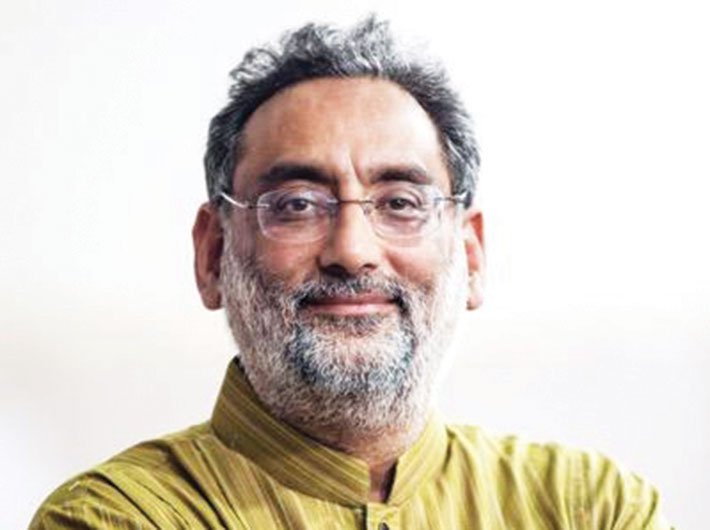In the Jammu and Kashmir budget, you have announced a basic income for construction workers, and also mentioned the concept of universal basic income. What was your rationale behind it?
My intention is to move to a situation where a whole lot of social sector schemes could be clubbed together. Their funds can be brought under one umbrella and distributed among the beneficiaries through DBT [direct bank transfer], which obviously, will be linked to Aadhaar. This could ensure focused targeting and money reaching the deserving groups. As against the basic idea of UBI, my proposal in the budget is targeted at the BPL (below poverty line) population.
READ: Universal Basic Income an alternative to state subsidies: Economic Survey
Does J&K have enough resources for launching such an initiative?
It’s a fact that right now we do not have enough resources to go for the original idea of UBI. Internationally, the idea of UBI is that a fixed amount of money be paid to all citizens irrespective of their needs. This is also called social dividend. I floated this idea in the budget because J&K has a relatively smaller BPL population. We have 25 lakh BPL people, amounting to some five lakh families. It’s easier to deal with these number than [the same group] in larger states. In the process of transferring social security funds through DBT, we would be also eliminating the multiple costs of administration and implicit leakages in the execution of schemes. It could also lead to an end of multiplicity of benefits to the same person. In our system there are a lot of hidden subsidies like the one on power and food. All the subsidies and schemes for the BPL could be accounted for as one and then an assessment can be made for paying a fixed monthly amount to the BPL population as UBI. This fund will be administered through one nodal agency.
Have you consulted the centre on this?
At present it’s just the seed of an idea I have floated in my budget speech. There is no way the state can implement this in isolation and without help from the centre since most of the schemes are funded by the centre. In the meanwhile, I have proposed [in the budget] a social security network for construction workers in J&K. There are some 3.5 lakh construction workers in the state. We have decided that J&K Bank will seed the bank accounts of all these workers who are registered with the J&K Building and Other Construction Workers Welfare Board. They will be given customised micro-credit ATM cards which, they can also use for cash-credit withdrawal up to Rs 10,000 to meet financial emergencies. This will be crucial for them to lead a life of dignity. The card will have inbuilt provisions for accidental insurance cover of Rs 2 lakh each under the Pradhan Mantri Suraksha Bima Yojana and Pradhan Mantri Jeevan Jyoti Bima Yojana at an annual premium of Rs 12 and Rs 330 respectively. They can also avail of the facility of withdrawal of cash through the bank’s business correspondents.
What about their families?
It is also proposed [in the budget] that the bank accounts and Aadhaar numbers of all the dependent family members of construction workers shall also be linked by J&K Bank to the main account. This will create an extensive database of about 15 lakh people. It will be easy to provide direct and extended benefits to all the workers and their families, such as education benefit to the children of workers and marriage benefits.
Why have you gone ahead without the national consensus on UBI?
I believe J&K is ideally suited for the trial of the idea of the UBI. The state has many advantages: smaller population – just 1.25 crore and a BPL population of 25 lakh. The government has to deal with a variety of social sector schemes. Besides the central schemes like MNREGS, midday meal scheme and aanganwadi, the state has its own social welfare schemes and their number is mindboggling. For example, in J&K we have about 24 scholarship schemes – each department of the government, including labour and police, has one of its own. There are at least 12 marriage assistant schemes. There is a good possibility that one person is availing more than one scholarships at the cost of another needy person. I tried to get the data about this; there are no records.
What is your blueprint for the ‘targeted UBI’?
At the moment we are spending around Rs 2,000 crore on social welfare through a plethora of schemes. I would want to create a social security fund and provide a ‘universal basic income’ of Rs 5,000 to Rs 6,000 per month to all those living below the poverty line through a direct beneficiary transfer system for, say, nine months. We can then revisit the idea and assess its outcome. I am very sure this will change the dynamics of the lives of BPL people and the way government deals with poverty.
NITI Aayog deputy chairperson Arvind Panagariya has said the country is not prepared for UBI at the moment. As an economist what is your view?
I know that at the moment the concept of UBI exists at some level in the government. There is no consensus on this right now. However, I believe this is the right time to start debate on this; this is an idea worth exploring now. Yes, on the national level, implementing this would require a huge effort and a lot of money. But to start with I am ready to launch it provided all the money meant for subsidies and welfare schemes is pooled and given to me.
aasha@governancenow.com
(The interview appears in the February 1-15, 2017 issue)

